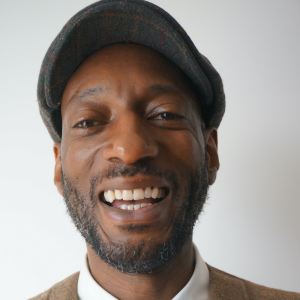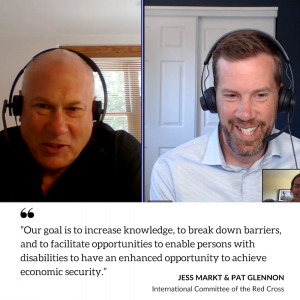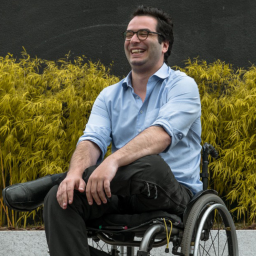Business Disability Forum (BDF) is a membership organisation for businesses and services providers that want to improve inclusion for all types of disabilities.
This includes commonly understood disabilities, but also diabetes, epilepsy, asthma, dyslexia, autism, fibromyalgia, heart and mental health conditions, as well as many other conditions defined as disabilities. According to the Equality Act, part of what defines a disability is something that has a substantial effect on someones daily activities and lasted for 12 months, or is expected to last for another 12 months.
BDF members include NHS bodies, banks, the insurance sector, local authorities, retail, and more. Daily, the BDF works with around 400 UK businesses – some of which have a global reach – and that includes SMEs. Together, their members employ over 20% of the UK workforce.
What is the Business Disability Forum, and what do you do?
BDF started around 30 years ago. We were called the Employers’ Forum on Disability, and we had a role in getting the Disability Discrimination Act through to Parliament. But although there was new legislation and more disabled people in jobs, nobody was working on making business structures more inclusive to make it a good experience for them.
Today, we work with organisations, to provide a fully inclusive experience for disabled people. Good employment policies are no good if people can’t access your website. A great health and wellbeing programme is undermined if the building is inaccessible. Our philosophy is that the whole organisation should be free of barriers.
We also deliver research and support policies. An important part of our philosophy is that government, disabled people and businesses need to collaborate to find solutions. So, we bring everyone together.
Meaningful Business (MB): Can you summarise the UK government’s legislation when it comes to disability and employment?
Angela Matthews (AM): The UK Equality Act 2010 forbids discrimination against disabled employees and gives employers a proactive duty to make reasonable adjustments for them. This means removing barriers that someone might experience at work, or while accessing work, because of their disability.
However, at BDF, we tell our members that this legislation is the bare minimum of what everyone should be doing.
MB: Can you tell us a bit more about how you work with businesses and organisations?
AM: Central to our philosophy is solving broader problems, and then we get into the granular detail of overcoming specific issues.
So, equipping people to start conversations is incredibly important – whether it’s an employee who has become unwell, or who is about to be dismissed, or a business that needs guidance on tackling a sensitive issue.
We also help our members with their inclusion strategies. So, we ask big picture questions like, who are you as an organisation? Why do you want to be inclusive? What does that mean for you? And how will it help you become the organisation you want to be? And finally, we like to challenge and debate ideas and get our members involved in the policy stuff.
To summarise: we advise, we think, and we share our knowledge. We’re there to make our members’ lives easier.

Angela Matthews, Head of Policy and Research, Business Disability Forum
MB: Is there an organisation or company you can pinpoint that is doing a really good job when it comes to disability inclusion in the workplace?
AM: I’ll start with BDF. They walk the talk and it’s a big reason I work for them.
I have a genetic condition, Parkinsonism, and I had a stroke. So, I’ve been through that journey with BDF. That’s what we look for from our members as well. Your strategy is great, your policies are great, but is the experience of your employees matching what you say you do?
The NHS and the civil service are good examples. No employer is always perfect, but despite their complexity, they’re often consistently inclusive in their messaging, structure, and processes. And the insurance sector is doing a great job coming together to look at inclusivity.
MB: We often hear “reasonable adjustments” mentioned in discussions about disability inclusion and employment. what does this mean?
AM: The Equality Act 2010 states that the duty to provide reasonable adjustments arises when an employer knows, or could reasonably be expected to know, that an employee has a disability. That could be because they have been told directly or it is noticeable that the employee is struggling with their health or mobility, or performance has declined, for example.
Adjustments can involve things like introducing assistive technology and flexible hours.
To decide whether adjustments are reasonable, employers should follow a procedure to assess cost, effectiveness, any disruption that implementation would cause, and so on. They also have a duty to keep checking in to make sure those adjustments remain effective. The challenge is that what is reasonable is not always made clear to employees, meaning employees’ expectations and employers’ perspectives differ. It can be a tricky experience to get right for everyone involved.
Another big challenge is enforcement. Some organisations want a transparent and easier way for employees to challenge employers who haven’t made adjustments. It is a topic that’s sparking lots of debate at the moment.
MB: How does legislation in the uk compare internationally?
AM: It’s very different. Some would argue, and I would agree, that the UK are leaders, and ahead of most other countries. Our Equality Act is not perfect, but it is good. And the duty to make adjustments and remove barriers is key.
One of the enviable things that the UK has, that many other countries don’t, is the Access to Work scheme, whereby employers can apply for government funding for adjustments. Again, it is far from perfect, but lots of other countries contact us about it.
Collaborating internationally is going to become much more important. More and more countries are looking at what we’re doing in the UK, and I hope to see more consistency in the future. It’s a global market, and both employers and employees are having wildly different experiences, which can create a real challenge.
MB: The last 12 months have seen working from home, and the technology that supports it, become standard. how do you think this will impact disabled employees as we emerge from the pandemic?
AM: Research by the Equality and Human Rights Commission and the Office for National Statistics consistently shows that the number one adjustment that disabled people said would keep them in work was flexible working or working from home. And here we are. It doesn’t work for everyone. But it has been a hugely positive thing for many.
I also think the wider digital inclusion agenda has got more attention. We’ve all had to adopt tools for working from home. (Microsoft) Teams and Zoom are no longer just for disabled people trying to overcome communication difficulties. This tech is now part of everyone’s lives.
We’ve also seen organisations reevaluating what it means to include everyone. Employers have seen that the disabled, non-disabled dichotomy or the homework vs office work dichotomy can be unhelpful and they are looking for ways for everyone to work seamlessly together. We are hearing from lots of organisations that had not thought about disability before, which is a very positive step.
___
TO JOIN THE ‘Accelerate’ COMMUNITY of leaders championing disability inclusion globally, APPLY TO BECOME A MEMBER OF MEANINGFUL BUSINESS HERE




















